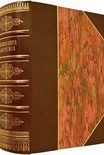Sarah Phillips Andrea Lee (classic english novels .TXT) 📖

- Author: Andrea Lee
Book online «Sarah Phillips Andrea Lee (classic english novels .TXT) 📖». Author Andrea Lee
5
In the next few days, the house seemed to fill up with old women. There were my father’s cousins from Washington, there was my great-aunt Madeline Chavis from Binghamton, there was the crowd of indestructible aged ladies who throughout my childhood and adolescence had formed a murmuring background frieze for events at New African. The house overflowed with a smell of old-fashioned cologne and pomade, and with a continuous light, sorrowful clucking, as if the big rooms had been invaded by a flock of elderly hens. It was impossible for me to turn around without being hugged and kissed by some member of that aged sisterhood. Whether she was brown- or yellow- or pink-skinned, whether she wore a wig or had thin gray hair drawn back into a bun, she always gave me the same shrewd, probing glance before embracing me. The old women filled the guest bedroom with little plastic suitcases full of hairclips and faded flannel nightgowns, and they spirited my mother away somewhere—possibly to her bedroom, which had become a darkened sanctuary from which someone was always emerging with a cup and saucer on a tray.
Every one of the old women brought food—glorious, near-phantasmagorical food that piled up in the kitchen like a treasure from the Arabian Nights. It was the weighty southern food of my childhood holidays, but with a grandeur and ambitiousness to it that, on its own, established an occasion of high solemnity. Overflowing from the refrigerator onto the kitchen table and counters were a roast goose, a crown roast of pork, a couple of pheasants shot in Maryland by Deacon Leech, a corn pudding stuffed with oysters, glittering jars of homemade pickles and preserves, and desserts of all description, dominated by an oceanic rice pudding flavored with oranges, and a mountainous chocolate poundcake covered with rum icing and dotted with pecans. Often in the days before the funeral I found myself creeping into the kitchen at odd hours when it was unguarded by the aged fairy godmothers of our household; all alone, I would greedily, frantically taste everything, as if I were on the track of a subtle flavor that continued to elude me.
Directed by my aunts Lily and May, the old women answered the phone and the doorbell and at the same time began an inconspicuous but thorough campaign of household tasks. The crystal was washed and set out ready for use on the sideboard, linen towels were starched and placed in the bathrooms for the guests who came and went, shades all over the house were dusted and then lowered to a uniform height, so that the rooms lay in a gleaming duskiness, and the house, with its low-voiced, somberly dressed visitors, had become an entirely public place.
There was nothing at all for me to do. Mama had disappeared, and Matthew spent much of his time closeted with Uncle Freddy and a lawyer. To escape the old women, I sat upstairs in the unused maid’s bathroom at the back of the house, where a trickling stream of water made rust streaks in a claw-footed bathtub, and a blue spruce scratched gloomily at the pane. I sat on the floor among stacks of old magazines and the volumes of an outdated World Book Encyclopedia, reading Two Years before the Mast, one of the books I was analyzing for my thesis. When I got tired of that, I scanned the party jokes from Matthew’s old Playboys and looked at National Geographic diagrams of the sacrificial well at Chichén Itzá. One afternoon Matthew came in and found me leafing through the P volume of the World Book. “Look,” said Matthew, dropping down on his knees beside me and grabbing the book. He opened it to a picture we’d both loved when we were little: a panorama of the Pleistocene Epoch in which everything—the rolling savannahs, the gentle hills, the curiously gnarled trees, the pelts of the big early mammals who posed in heroic attitudes around the landscape—had the same tinge of autumnal gold. “I’ll be the saber-tooth,” he said, his narrow, dark-lashed gaze giving me the familiar vertiginous sense of looking into my own eyes.
“I’m the woolly mammoth,” I said.
It was a game we used to play with the animals in the picture: a sort of Rock, Scissors, Paper that was more interesting than it sounded because you pretended to be the animal you picked and tried to figure out ways to beat the others. We hadn’t played it seriously for years, but the words to it were part of the private coded language we had shared, and the picture seemed a portrait of an epoch in our lives. It was a time, I realized, that was now as remote from Matthew and me as if a glacier had covered it. After a few seconds, my brother and I couldn’t look at the World Book or at each other anymore. I stared down at the knees of my jeans, which were white with dust, and Matthew, without saying anything else, got up and walked away.
6
On the night of my father’s funeral, a policeman and four members of the Ushers’ Guild were directing the crowd outside the church. By the time





Comments (0)